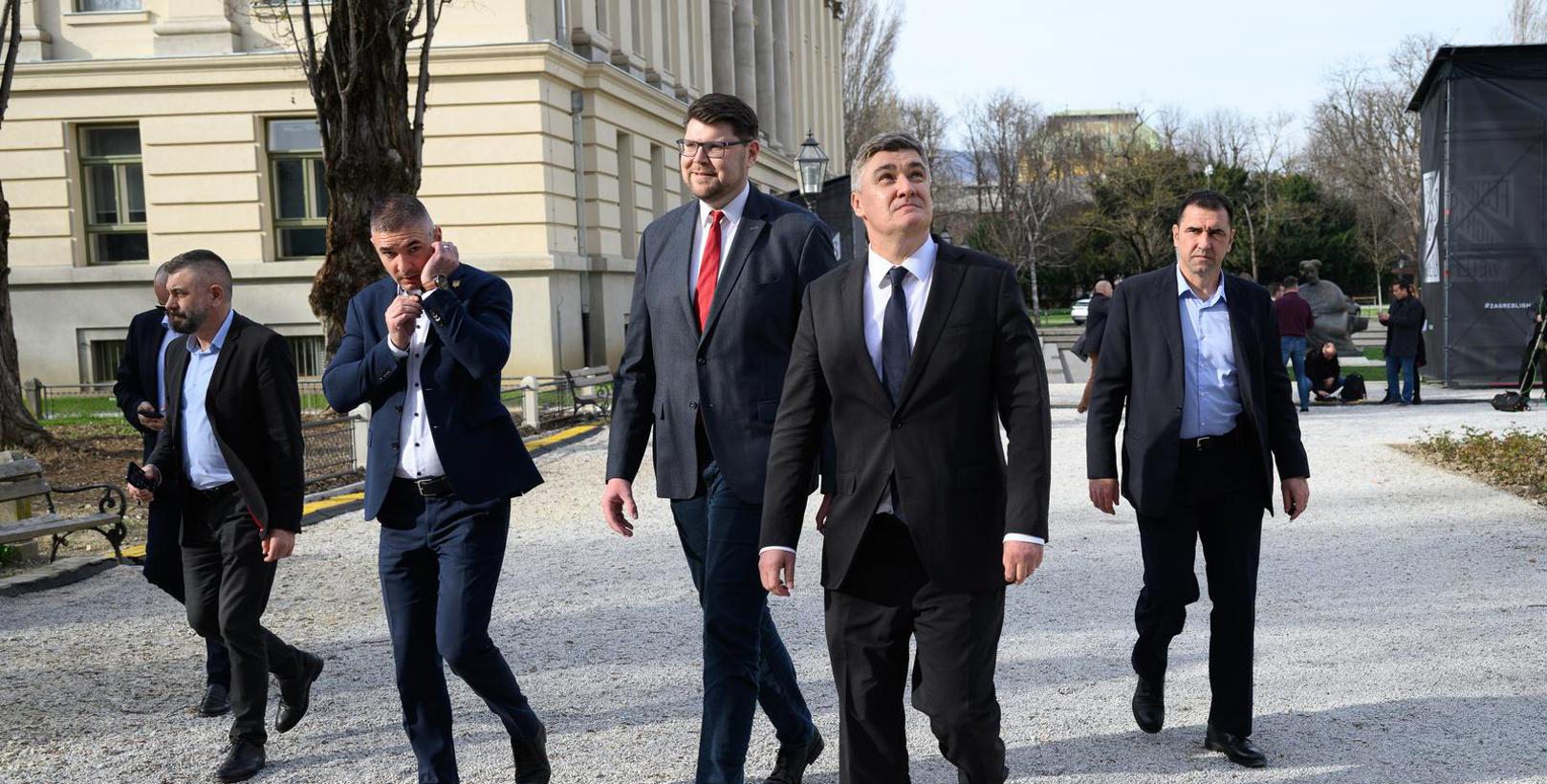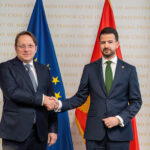The latest developments in Croatia can be safely claimed to the most serious political crisis in the country in the last decade, since the accession to the European Union. The reason for such an assessment is not only the extremely intense conflict between the leading political forces, but also the implications of the ongoing political squabbles for Croatia’s development. And it’s not only about Croatia – the crisis might also affect the EU, NATO, Southeastern Europe, and, especially, Western Balkans.
Let’s get to the elections!
The crisis took root when disputes emerged between Croatia’s government and opposition over legislative initiatives and certain appointments. It was about drafting a bill, which opposition and media claimed would deprive journalists of the opportunity to investigate corruption, as well as about the appointment of a prosecutor general, whom opposition leaders see as someone loyal to the ruling party, the Croatian Democratic Union (HDZ)”, as well as with links to organized crime.
In late January, journalists, joined by some opposition politicians, held a number of protest meetings in Zagreb and Split. In mid-February, an opposition protest was held in St. Mark’s Square in Zagreb. The rally was organized by 11 opposition forces led by the Social Democratic Party (SDP). The event was held under the slogan “Enough! Now let’s get to the elections!” Demonstrators demanded that the parliament be dissolved and snap elections be held in the country.
Already in early March, the idea of holding elections as soon as possible saw support from the ruling party, HDZ (the leader of public opinion polls). A few days later, members of the Croatian Parliament almost unanimously voted for self-dissolution, and President Zoran Milanović, in line with his mandate, scheduled elections for Wednesday, April 17.
After that, the unprecedented political crisis for Croatia unfolded.
President’s surprise
Almost immediately after announcing the election date, Milanović said he would run as an independent and non-partisan candidate with the leading opposition force, the Social Democratic Party, SDP, while remaining in the presidential chair. Milanović promised to resign once his political force wins the elections, forms a coalition and appoints the government he plans to lead.
The president’s statement came as a surprise even to some SDP members, let alone other parties and average citizens, causing a powerful storm on the Croatian political scene.
Milanović’s plans to participate in parliamentary elections saw a blitz response from the Constitutional Court, which ruled that the president shall not participate in the political activities of any political party while performing presidential duties. This rules out any possibility that the president becomes a candidate in the parliamentary elections or stands as a candidate for prime minister, the Constitutional Court explained. If the president, while in this position, runs for election to the Croatian Parliament or appears publicly as a future candidate for the prime minister’s post, he shall immediately file a resignation letter. In this case, the speaker of the Croatian Sabor (parliament) shall assume duties of an interim president, the Constitutional Court emphasized.
However, this decision did not put an end to this more than unusual situation.
Zoran Milanović did not resign from, and although he will not run for office, he still intends to take part in the election campaign… informally.
“Rivers of Justice”
In order not to violate the Constitution and to fulfill the ruling of the Constitutional Court, the SDP will not directly include Milanović in their party list, but is going to run a campaign in which the president’s presence will still be obvious, to say the least.
On March 21, SDP leader Peđa Grbin, after a meeting of the party’s governing bodies, said the opposition bloc revolving around the Social Democratic Party would be named “River of Justice.” An allusion to a cult song by the Zagreb-based band Film from their 1985 album, it is also a direct quote from a statement Milanović made after the Constitutional Court handed down its ruling. “Rivers of justice are coming!” (Rijeke pravde dolaze) he wrote on Facebook.
“The river of justice” is on the way to victory and Z…, we can’t say it, is on the way to victory” («Rijeke pravde’ kreće u pobjedu i Z… ne smijem to reći, kreće u pobjedu”), Grbin said, causing additional confusion among observers by using of the controversial letter Z, which after Russia’s invasion of Ukraine is perceived as a symbol of Russia’s aggression.
Hike in public support
It must be noted that the Milanovic / SDP campaign has been finely crafted by professional spin doctors. All the steps being taken by the president and the party on which he relies had been calculated in advance, which is evidenced by the fact that the public rating of the Social Democratic Party did not collapse against the background of all the contradictory statements and steps. In fact, the situation was quite the opposite. It popularity was not hindered even by the withdrawal from the joint coalition with the SDP of the three other opposition parties – Focus, IDS (Istrian Democratic Council), and Workers’ Front.
According to the HRejting poll, conducted March 16-19 and covering 1,000 respondents, the leaders of public polls are the ruling HDZ (27.7%) and the SDP (21.6%, which marked a 9% hike in just three days).
According to a survey by Ipsos, which covered 604 citizens on March 17, HDZ has 27.3% support, SDP has 22.6%. Of those who are going to vote, 32% want to see Zoran Milanović as prime minister, and almost the same number, 30%, are willing to vote for the current head of government, Andrej Plenković. Milanovic’s advantage is within statistical error (4%). But the general mood is clear – a large part of Croatian voters do not condemn the president’s latest statements and actions, but rather support them. Therefore, there are chances for the Milanovic/SDP team to come to power by running an aggressive campaign and forming a coalition with other opposition parties after the elections.
Shifting priorities
The question “why did this happen?” must be answered by first noting that today Croatia has achieved the goals that were seen as the country’s priority since the struggle for independence. The nation defeated the aggressor, regained the occupied territories, became a member of NATO and the EU, entered Schengen and the euro zones. Now public focus is focused on less extensive and ambitious tasks, the solution of which should contribute to the socio-economic development but, most importantly, to improving the life of Croats immediately.
On this path, it’s not the political forces that are engaged in routine affairs but those that are ready to show a bright result here and now who have the winning hand. It’s not those who talk in complicated terms about responsibility and future, but those that loudly propose simple steps that will allegedly yield immediate results. Classical populism as it is…
Even the fight against corruption becomes, first of all, an effective tool for beating political opponents rather than a tool for establishing justice.
Of course, HDZ’s actions are not flawless. But in this election campaign mode, which was proposed by Milanovic and the SDP, there simply cannot be any high-quality meaningful discussion about achievements and mistakes, whatever the format.
The current president of Croatia, with the help of bold political techniques and loud statements, managed to quickly become the main newsmaker of the election campaign and set its main agenda. These are the corrupt government, unwanted migration, the need for more pragmatic (“selfish”) relations with the EU (especially when it comes to European funds) and distancing as much as possible from the war in Ukraine. It should be noted that, answering a question about the situation of Ukraine on March 21, Milanovic stated that it was a war between Russia and America, being waged through intermediaries. He also emphasized that Croatia should shift away from Ukraine.
Trump, Orban, Dodik… Milanović
Local observers call Milanović a “Croatian Trump”, or “Orbán”, and the current political face of the SDP’s informal leader indeed shares many features with the said politicians. In the conditions when the Social Democratic Party agreed to Milanović leadership, it can be predicted that the SDP’s political position on these issues will also become similar to “Trump’s” or “Orban’s”.
Milanović’s other controversial views concern Bosnia and Herzegovina, and they are almost identical to the position expressed by the leader of the Bosnian Serbs, President of Republika Srpska Milorad Dodik, only implying a Croatian vector instead of a Serbian one. (No wonder the two politicians meet from time to time in an informal setting).
Milanović labels the current political system of BiH “colonial” and does not recognize the powers of the High Representative of the international community, which is practically a copy of the theses voiced by Dodik and his Russian “friends”. Protecting the rights of Croats in Bosnia and Herzegovina (the right to elect a Croatian representative to the Presidium (Presidency) of Bosnia and Herzegovina) Milanovic has already announced as his priority, noting that “Plenkovic did not dare do it, but I will do it immediately.” (It should be noted that HDZ has also been pedaling the topic, but without any radicalism).
Trump, Orban, Dodik… And now Milanovic’s name can be added to the list, if his team’s plans come to life.
A logical question is whether there is a Russian trace in the recent developments in Croatia. Experts are tight-lipped about it, but at the same time, there is no doubt that Croatia, led by Milanović and/or his political team, will change the country’s course to a more pro-Russian one. And these changes will concern Zagreb’s policy towards Bosnia and Herzegovina, its position on aid to Ukraine, and behavior in the EU and NATO. But, as we can see, this does not at all frighten Croatian voters.



